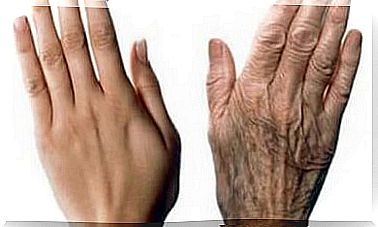Excessive Appetite: What Are The Causes?

Hyperphagia, or excessive appetite, is a seemingly unmotivated uncontrolled increase in hunger. The word derives from the Greek and is composed of the prefix “iper” (above, excess) and “fagia” (to eat). The result is the consumption of disproportionate amounts of food.
Hunger is a completely normal sensation that occurs when the body needs to feed itself to perform its functions. It is not normal, however, to always feel hungry, even immediately after a large meal. In these cases we speak of hyperphagia.
The rampant increase in appetite can be a sign of a disease, sometimes of an endocrine disorder, or of mental distress. It can be occasional or long lasting.
When do we talk about excessive appetite?

Insatiable appetite is medically called hyperphagia. Sufferers of this condition continually eat large quantities of food.
Food is typically swallowed barely chewed. It is an eating disorder, usually of psychic origin and often associated with bulimia.
The hyperphagic person has a tendency to prolong meals more than necessary in order to continue eating. It almost always prefers certain foods, especially those rich in sugar or fat.
She usually feels embarrassed, gets nervous when she feels watched, but she can’t stop her behavior. Despite the sense of shame, eating is a need.
Causes
Hyperphagia is not a disease in itself, but a symptom of another disorder. Sometimes the underlying problem is physical illness. According to Obesity magazine , people with diabetes mellitus, hyperthyroidism, or hypoglycemia can have uncontrolled hunger pangs.
In some cases, drugs are responsible, such as those that inhibit the production of leptin (a hormone that regulates hunger). If the mechanism does not work properly, the feeling of satiety ceases.
The research conducted on guinea pigs and published in the scientific journal Proceedings of the National Academu of Science or the United States of AmeriCA , links the two phenomena: lower production of leptin and hyperphagia.
More frequently, however, excessive appetite responds to a psychic disorder. Stress, depression or anxiety can lead to eating disorders. According to a study published in 2008, hyperphagia is usually accompanied by bulimia.
The latter is characterized by excessive consumption of food for a limited period. These episodes are commonly called “binges”. After the binge follows the sense of guilt, for which the person will try to eliminate the ingested food by inducing vomiting or with a laxative.
Symptoms and Diagnosis

One of the sensations that accompany hyperphagia is shame. It is not uncommon, therefore, the tendency to isolate themselves during meals to avoid being observed.
The stimulus of hunger does not disappear and this leads to snacking at any time, even in the early hours of the morning. This behavior is often accompanied by depression and low self-esteem.
Excessive appetite often causes digestive disorders such as heartburn, diarrhea, vomiting and nausea. But also other diseases such as overweight, diabetes, high cholesterol and cardiovascular disease.
Excessive food intake also causes sleepiness and slows down normal daily activities. The diagnosis is usually made by simple observation. In most cases, relatives and friends notice the problem.
Excessive appetite treatment
Before starting treatment, the cause of the hyperphagia should be determined. If it is linked to an organic disease, it must be treated so that it does not generate episodes of excessive appetite.
When the problem is caused by a drug, it should, if possible, be replaced with an equivalent that does not cause this side effect. If the cause is psychic, the problem must be treated by a psychologist, aiming at improving self-esteem and reducing anxiety.
In some cases, this disorder is completely harmless and temporary, for example in pregnant women, sportsmen and adolescents. Insatiable hunger, in these cases, is explained by an increased need for nutrients.
Hyperphagia for short
Hyperphagia produces excessive appetite which leads to more food than necessary. It is important to identify the cause in order to initiate effective treatment. If you suspect that you have this disorder, talk to your primary care physician.









